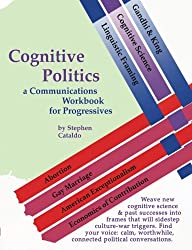Many people love to leave comments on social media before reading the article. This time, please do! What is your relationship with judgment in the current political climate?
Do you judge someone for comfortably voting for a man who mocks people with disabilities and brags of grabbing pussies?
Or is it wrong to judge them?
Those are the two most common choices, and many people opposed to Trump are arguing about what choice to make. I've joined a group that is exploring smarter ways to engage in social media than anger and judgment (I recommend joining!) and this conversation over judgment is still unresolved. Neither answer above satisfies me.
What happens if we break the question down:
Should you do the judging? Do you have a right to judge? If you have the right, is it useful for you; useful for the movement?
Should someone who voted for a pussy-grabber be judged? Does it help women if you judge that person — is there value in your judgment? Judges usually create consequences: what are the consequences people face for your judgement, and is this helpful?
If people have done things that a judge would abhor, is judgment what we should be spending on our time and energy on?
If you chose to judge, do you judge someone for voting for Trump? Or very specifically judge someone for undervaluing specific egregious actions: judge them particularly for voting for a man who claims to grab pussies, not weighing his abusive behaviors seriously enough? Or do you only personally judge people who personally offend you: do you ask someone for what you want, with specific requests, and then decide if they have failed you? Can you make a request before engaging in judgment, with each individual?
The judgment frame almost always falls into the "two teams" frame, which is very destructive politically — if you are going to release your fury at someone for being sexist or racist or similar, it's important to stay focused on them, at a specific action of theirs and not on their team. What kind of judgment aims to create broad shame? What kind of judgment aims to create fixable guilt?
My personal perception is that the judgment frame is a bad place to take a conversation, a place with no leverage. This doesn't mean that people have or have not done something that deserves judgment, and doesn't mean you should spend your time policing (and judging) people who are furious and expressing their fury. Just that you can't bend the moral arc toward justice from a place with no leverage and that is usually my personal goal. The entire conversation about what judgment might be appropriate for people who vote for a candidate whom I find racist, sexist and appalling is just one best side-stepped, neither affirming or denying what a judgment might be. It's not my role, it's not useful.
